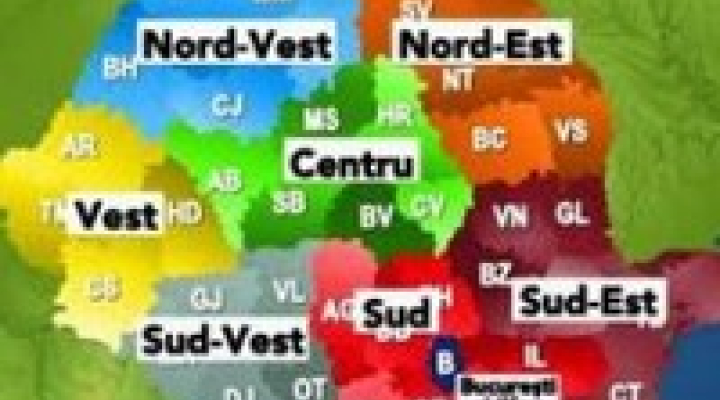The principle of subsidiarity should be mandatory for member states also
DAHR’s MEP Csaba Sógor called his colleagues’ attention to the dangers of the territorial reorganization of Romanian during the one-minute speeches of the plenary session of the European Parliament in Brussels on the 22nd of June.
Here follows the MEP’s speech:
„Madam President, the EU does not interfere with the administrative affairs of its Member States. It is important to highlight this, because today some Romanian politicians explain the necessity of administrative reorganization by claiming that this is the only way Romania can receive more money from the Structural Funds. The current debate in Romania is about a reform that would create eight NUTS 2 level administrative units from the current 41 counties that are NUTS 3 administrative units, while ignoring geographical, economic, social and cultural realities. The main debates concern the Romanian Hungarians in particular, because this native national community, despite the provisions enshrined in the relevant convention of the Council of Europe, would not represent a majority in any of the new administrative units and would lose its rights to set up a local government. The EU has to ensure that Member States not only expect the EU itself to observe the principle of subsidiarity, but that they, too, ensure that decision making takes place as close to the citizens as possible.”
--------------------------------------------------------------------------------------------------------------------
The debate about the atomic energy and radioactive waste has become increasingly heated after the Fukushima accident. It was the European Parliaments Committees for Industry, Research and Energy and Employment and Social Affairs that debated, taking into account the events, the European Commission’s proposed directive on spent fuel and radioactive waste. As shadow rapporteur, MEP Csaba Sógor presented the European People’s Party’s point of view during the June 22nd debate on the subject. He called for European solidarity in the issue. Here follows his speech:
„Madam President, the issue of spent fuel and radioactive waste management is an important and pressing area, which has received even greater attention since the disaster at Fukushima. Despite technological innovations and solutions and waste management programmes, the problem represents a greater challenge every day. The management and final disposal of radioactive waste is an existing problem, and will continue to exist in the future. In Europe we aim for energy security and environmentally friendly, stable energy production. However, we also need to pay increasing attention to several issues, for instance the processing, transmutation and final disposal of rapidly expanding quantities of radioactive waste. Not only do we need to create the technical facilities for this, but also build a strict political, legal and social structure. It would be worth considering, assessing and planning pan-European cooperation in this field. All responsible participants should be involved in the building and development of this safe process. We need to take measures that will also protect future generations.”
----------------------------------------------------------------------------------------------------
Three Romanian cities are in competition for the 2020 European Cultural Capital title, Iasi, Cluj and Timisoara. Romanian liberal MEP Cristian Buşoi organized a hearing in the EP to debate the chances and values of Timisoara. DAHR’s MEP was amongst the guests of the event. He considers that Timisoara has a good chance to win the title since it has been the first venue, at a global level, for implementation of some technological achievement. On the other hand, the city has a rich historical heritage. Apart from the native Romanians, Hungarians, Serbs, Croatians and Bulgarians, Poles, Italians and the French also have links with the city.
The Hungarian MEP from Transylvania considers that a crucial criteria for Timisoara is whether it will be able to show its multiculturalism in everyday life, for example through multilingual public inscriptions.











